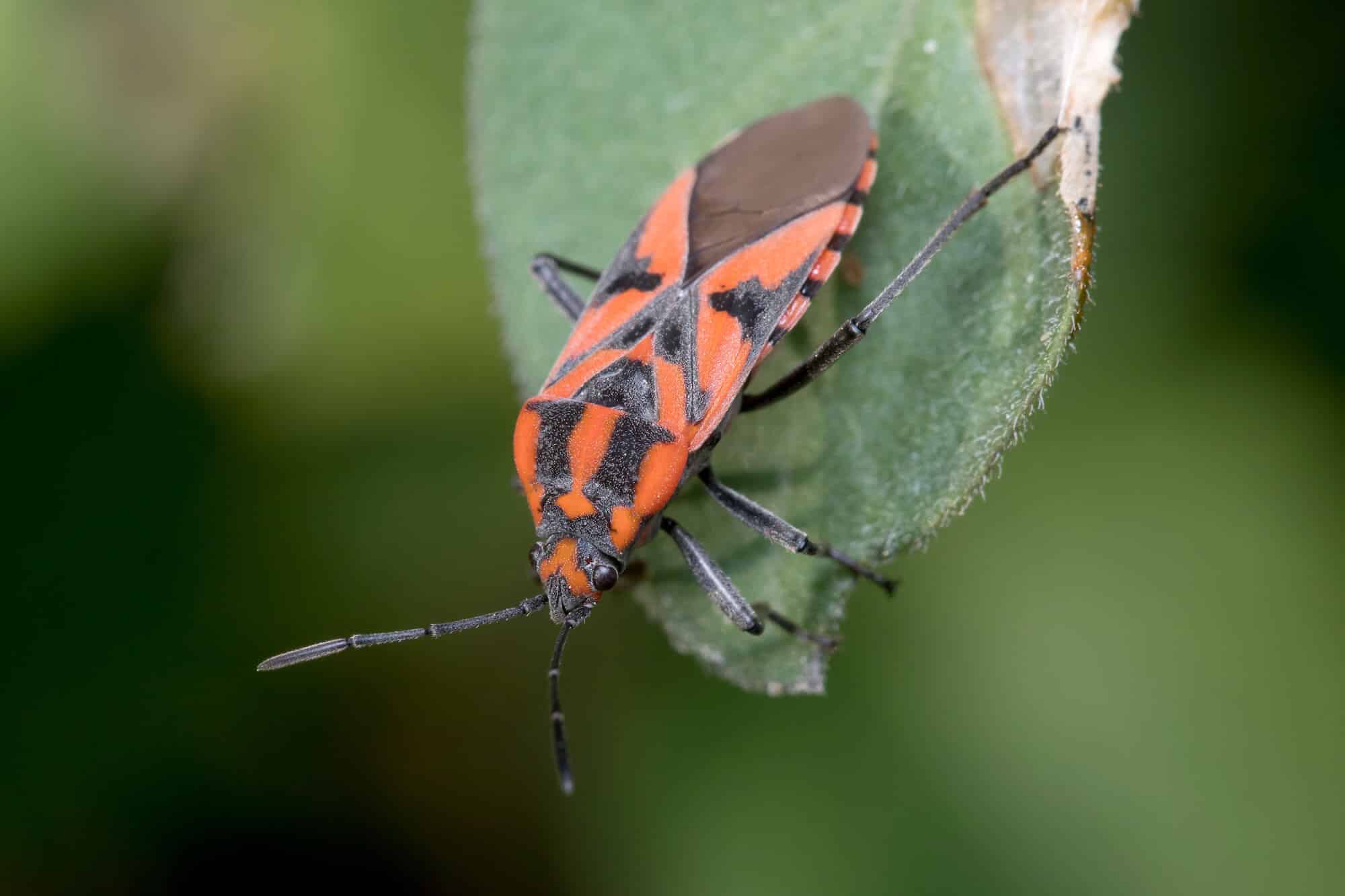How to Get Rid of Cinch Bugs
It’s always a good idea to spend time outdoors, enjoying the weather while doing various activities. However, if you are like many people and have a lawn, there is one pesky little creature that can ruin your fun: chinch bugs! These little bugs can quickly infest your lawn and make it difficult to enjoy your time outside.
It doesn’t matter if you own a home, rent an apartment, live in campus housing, or even if you’re just staying in a hotel room for a short time. Chinch bugs are one of the most frustrating pests that can affect any place where people live or stay. While chinch bugs have been around for as long as people have lived in buildings, if you’ve never had to deal with them before, it can be extremely difficult trying anything to get rid of them. But don’t worry. In this blog post, we will discuss how to get rid of chinch bugs and keep them from ruining your time outside.

What are chinch bugs?
Chinch bugs are small, black insects that live in the soil and feed on grass. They can be very difficult to see because they are so small and like to stay hidden in the soil. The adult chinch bug is about 1/10 inch long. The insect has wings but does not fly. It uses its mouth to pierce the plant tissues for feeding.
Unlike other bugs, such as ants or roaches, chinch bugs don’t come out into the open air very often. So they can be so hard to get rid of – you can’t just spray them with bug spray and hope for the best.
What attracts chinch bugs?
Chinch bugs are attracted to grasses and weeds stressed from drought or other conditions like cold weather or disease. They can also be drawn to areas by nearby trees or bushes if there is a food source for them in that area.
They are also attracted to moisture, so you’ll find them near your yard or garden if you’ve frequently been watering or if there has been recent rainfall. These insects also tend to hide in areas with lots of dead leaves and mulch, especially ones that have dried out.
Chinch bugs are commonly found in turf grasses and ornamental plants. They produce an alkaline substance that burns the leaves of the plants, which will cause them to discolor and curl. As spring comes around, they reproduce and lay their eggs on the stems of grasses and ornamental plants. Once hatched, they feed on the roots of these plants.
Why do you need to get rid of chinch bugs?
Gardening can bring you many hours of joy, but it can also be wrought with a variety of pests, diseases, and other problems. Chinch bugs are one such problem that can wreak havoc on your landscape plants and other greenery. Not only do they cause damage, they often go unnoticed until it’s too late and serious infestation sets in.
Chinch bugs can ruin your lawn greatly. They suck the life out of the grass, leaving behind bald spots. They do this in multiple ways. First, they chew the ends of grass blades, and then they chew up the turf; they also eat the roots of seedlings. These tiny critters look like ticks with hair and feed on the roots or stems of cool-season grasses.
When chinch bugs infest a lawn, they cause yellow patches to form where the grass dies. If left untreated, these patches will grow larger and eventually kill all the grass in that area. Chinch bug infestations can also cause the grass to become thin and brittle.
How do I know if I have chinch bugs?
With a little detective work, you can identify chinch bugs. One way to do this is by checking the underside of leaves for their small, black bodies. Another sign that you have an infestation is if you see a lot of dead grass on your lawn, especially during the summertime. However, other things can cause similar symptoms, such as drought or over-watering.
If the problem is bad enough, you may also see some adult chinch bugs flying around. So it is important to get an accurate diagnosis from a professional before trying to treat the problem yourself.
How do I get rid of chinch bugs?
The chinch bug is a destructive and relentless insect that can ruin an entire lawn. Fortunately, there are many ways to prevent chinch bugs from invading your yard and ruining your lawn. The most effective way will vary depending on where you live and the severity of the infestation.
Here are some methods that you can try:
- Apply a pesticide: If you have a severe infestation, you may need to apply a pesticide to get rid of the chinch bugs. Be sure to read the instructions carefully and follow all safety precautions.
- Use nematodes: Nematodes are tiny, worm-like creatures that feed on chinch bugs. You can buy them at most garden stores, and they are very effective in controlling an infestation.
- Raise the soil level: Chinch bugs like to live in moist soil, so if you raise the soil level around your lawn it will be harder for them to survive.
- Water less often: Chinch bugs thrive in wet environments, so it will be more difficult for them to survive if you water your lawn less often.
- Apply a fertilizer: Applying fertilizer will help your lawn grow thicker and stronger, making it harder for the chinch bugs to eat the grass.
Remove dead grass: If you have any areas of dead grass, remove it and replace it with new sod. This will help prevent the chinch bugs from spreading to other parts of your lawn.
While these are all effective methods for getting rid of chinch bugs, it is important to remember that they may not work in every situation. If you are having trouble getting rid of them, or if the infestation is very severe, be sure to call a professional pest control company for assistance.
Preventing chinch bugs from entering your lawn
Preventing these tiny creatures is the key to keeping them at bay. Here are some tips on how to do that:
- Keep your lawn healthy and well-maintained by watering and fertilizing it regularly
- Remove any debris, such as leaves or branches, from your lawn
- Make sure your grass is mowed short; chinch bugs thrive in tall grass.
- Sprinkle diatomaceous earth over your lawn; this will kill the bugs while being safe for pets and children.
- Treat your lawn with insecticide if you begin to see any chinch bugs.
Frequently Asked Questions
Does Dawn dish soap kill chinch bugs?
Yes, Dawn dish soap is one of the most effective ways to kill chinch bugs. It will suffocate them and prevent them from feeding on your plants.
Do I need only pesticides to get rid of chinch bugs?
No, you do not need only pesticides to get rid of chinch bugs. Many natural remedies can be just as effective as pesticides.
What is the best way to treat my lawn for chinch bugs?
The best way to treat your lawn for chinch bugs is by using a combination of methods, including insecticides, nematodes, and horticultural oils. You may also want to consider cultural practices like watering correctly and mowing regularly.
What is a natural remedy for chinch bugs?
Few natural remedies that can be effective against chinch bugs include garlic and soap spray.
How do I know if my plants have chinch bugs?
The best way to tell if your plants have chinch bugs is by checking for the presence of small black insects on the leaves of your plants. You may also see evidence of feeding damage on the leaves. If you suspect that you have a problem with chinch bugs, take a sample of the insects to your local garden center for identification.
Do I need to water my lawn more often if it has chinch bugs?
No, you do not need to water your lawn more often if it has chinch bugs. In fact, overwatering can actually make the problem worse. The best way to water your lawn is by using a method called deep watering. This involves watering your lawn for a longer period at a lower frequency.
What is the life cycle of a chinch bug?
The life cycle of a chinch bug typically lasts from three to four weeks. Adult chinch bugs lay eggs in the soil, and the eggs hatch into nymphs which feed on plant roots. The nymphs then mature into adults and lay their own eggs.
Conclusion
Chinch bugs are a common pest for many homeowners. They have the power to feed on a wide variety of grasses and other plants that require less care and maintenance. These pests will be in your lawn until they are dealt with properly. Using pesticides or any other chemical or natural methods would work as well, but these bugs may still come back if you do not completely eliminate all that is left of them. It is recommended to take off the top layer of your soil with a shovel, so they cannot eat any plant in your lawn.
If you have a lawn that is already weak from issues such as drought, chinch bugs will love it even more because they will feed on your lawn and make it even weaker. Don’t let a large amount of chinch bug-infested lawns in your area prevent you from having a beautiful, green lawn again. Take some time to read through this article and follow the tips mentioned so that you can become insect-free again in no time.







